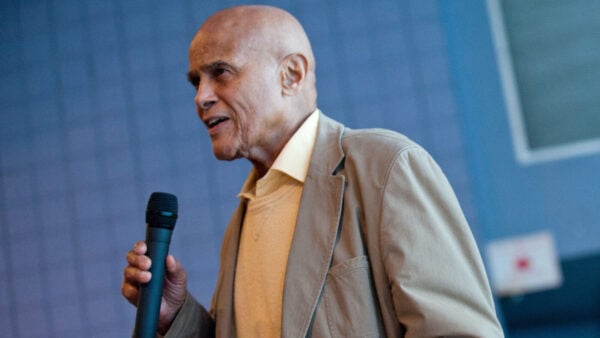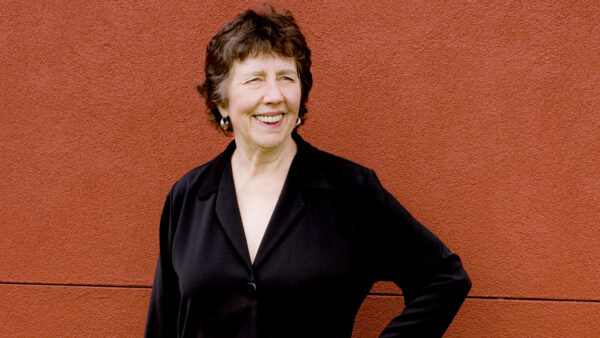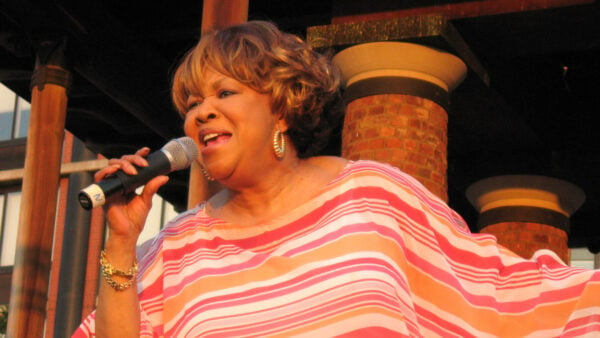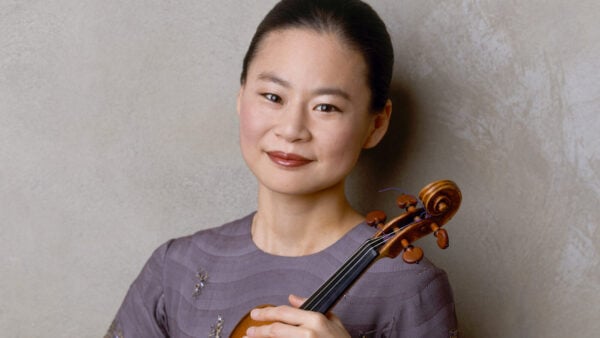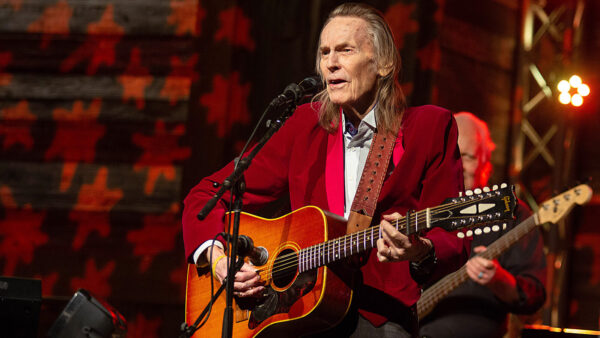
Joan Baez in 2007 (Photo: Bryan Ledgard, CC BY 2.0, cropped, via Wikimedia Commons)
Joan Baez has always said she is an activist first and an artist second. At 75 years old, her priorities have not changed. This fall, Baez is on a tour of major cities throughout the United States to, in part, raise awareness about the nation’s criminal justice system.
“Literally my manager and I sat down and said, ‘What can we do to be useful?,’” she stated in an interview before her performance at Chicago’s Symphony Center on Tuesday, October 25. For her tour, she has partnered with the Innocence Project which “consists of lawyers going to prisons to find people who are wrongly convicted, some of whom are on death row, and reopening the cases.”
Baez, who was incarcerated twice in 1967 for participating in peaceful protests, said, “The Innocence Project is more than relevant right now because it’s about all the stuff that’s happening on the streets – racial disparity, mass arrests, stop-and-frisk, right down to torture in the prisons.”
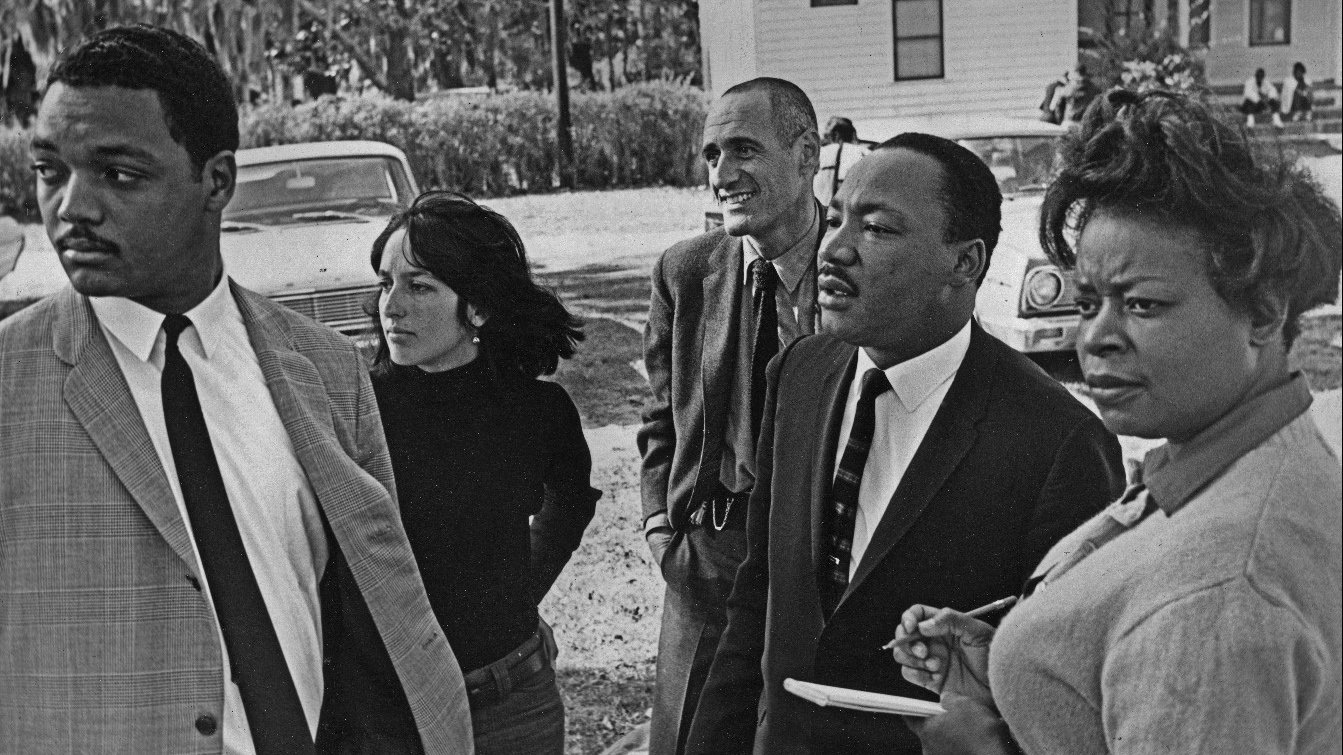
Rev, Jesse Jackson, Joan Baez, Ira Sandperl, Martin Luther King Jr., Dora McDonald (Martin Luther King Jr. secretary) annual Southern Christian Leadership Conference staff workshop Penn Center, Frogmore, SC 1966 (Bob Fitch Photography Archive, Stanford University. Libraries. Department of Special Collections.)
She reflected on the importance of non-violent protest and her work marching alongside Dr. Martin Luther King Jr. When asked how Dr. King might respond today to issues facing the United States and African Americans, in particular, she said:
“I think he would be doing some damage control and would go to where there is heartache and strife. There people are just armed up to the teeth and ready to use violence. I’m sure he would be supportive with the churches, with the moms trying to make some sense out of that. He had a great, wonderful mind and he would probably see things that I don’t.”
When considering what the Civil Rights movement has achieved, Baez said, “I was smart enough to know that of all the things that we talked about, very few are realistically going to happen in my lifetime. So I don’t spend a lot of time grumbling that stuff didn’t happen. It’s a little overwhelming how fast everything’s going to hell.”
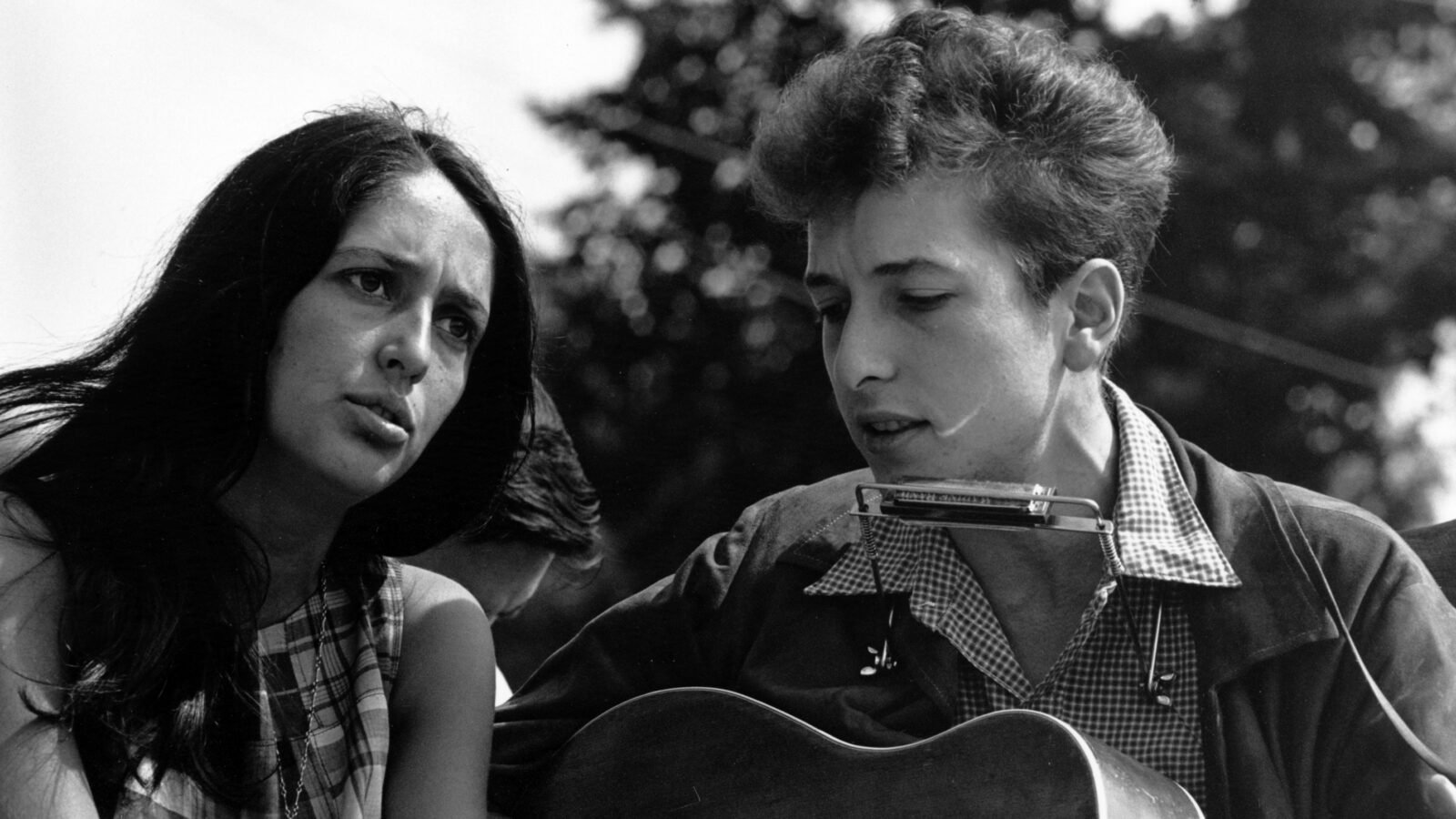
Baez with Bob Dylan at the March on Washington, August 28, 1963 (Photo: Rowland Scherman)
As Bob Dylan said, “the times they are a-changin’.”
Baez also spoke about Bob Dylan, albeit in very different terms than she used in a 1967 interview with the late Studs Terkel. Read or listen to her comments from 1967 about Dylan below:
I think what happened with Bobby is the same as with the Beatles – they are really talented but they don’t want to accept responsibility for what’s going on. And the minute they write a song that was sort of saying, “I’m on this side or that,” then everybody’s going to jump all over them for being part of a cause and they don’t want it.
Bobby even tries to deny that what he did write had anything to do with any meaning. But I think it’s silly. I mean he wrote something like “William Zantzinger” [officially titled “The Lonesome Death of Hattie Carroll”] which is fantastic.
It’s easier to think you’re dropping out then to try to accept responsibility. But I think it’s impossible to drop out. I suppose you can. You can, you know, go and live on an island and eat bananas or something… But there’s really no way to make yourself disappear in 1967.
Baez said of her younger self, “I was just a relentlessly critical ass. I mean I wouldn’t let anybody alone. I’ve gotten a little bit nicer in my old age.”
Since Bob Dylan was recently awarded the Nobel Prize and then failed to acknowledge the receipt of the award, Baez’s comments about accepting “responsibility” for one’s words and trying to “make yourself disappear” are particularly prescient.
Following up on her comments about Dylan, she said, “Now people say that some artists have responsibility and need to ‘walk the talk.’ I mean, yes, I do. But I don’t think it’s useful to say that. I think the only thing I can say that would be useful would be how rich it has made my life to be involved in political activism and to be willing to give up certain things in order to serve others. It has made the meaning in my life. Singing is wonderful, but connecting it with something larger than myself and a concert is what made my life worth living.”
Baez met Dylan in 1961 when she and her music were incredibly popular worldwide. In 1962, she appeared on the cover of Time Magazine. Baez and Dylan performed together often and soon formed an off-stage relationship which Dylan ended in 1965. Still, Baez continued to support his music, releasing a two-disc album of Dylan covers, Any Day Now, in 1968.
What about Dylan’s music spoke to Baez so deeply? “I mean it’s totally unique – totally unique. I was just thinking when I was in the gym the other day, all these guys who came post Dylan? You can’t find anybody who doesn’t sound like him. There was just massive musical revolution, and word-wise he was at the head of it.
“I was in the middle of that whole thing and I was the voice, the singing voice. And I can say that because it’s nothing I did. I just maintain and deliver. I do maintenance and delivery. But his voice was sort of one in a million.”
Baez has also developed more nuanced ideas about another topic: taxes. Read or listen to her comments about taxes that she made in 1967 below:
I don’t pay. Now, almost 75% of our tax dollar goes to armaments. I mean a weapon is made not to defend but to kill. Even if you think you’re making it purely for defense, in effect what happens is that somebody gets killed with it. I think it’s a poor idea that’s been used for the last 5,000 years and it’s time to change and do something else instead. I just refused to volunteer my money to blow up babies.
Recently, Baez said, “I mean ideally I would have never paid income taxes again and then I would have lived below poverty level. I guess I wasn’t up for that. It was a number of years that I refused.
“Now it’s another conversation, like draft resistance, it’s another other world. But what does stay the same but just gets more exaggerated is that the rich are getting richer and to such a vulgar level. Is it possible to tax the rich?” she mused with a laugh.
Though Baez has been incredibly outspoken on many issues throughout her career, she has generally avoided party politics. She has only endorsed two presidential candidates publicly, first endorsing Obama in 2008, and later showing support for Bernie Sanders when he was contending for the Democratic nomination.

Joan Baez (left) with Dolores Huerta (far right), United Farm Workers Union Vice President, and Marshall Ganz (second from right) at the funeral service of Nagi Daifullah, a Yemeni worker killed by a deputy sheriff during a major strike that swept the state, 1973 (Bob Fitch Photography Archive, Stanford University. Libraries. Department of Special Collections.)
She said, “I really got behind Bernie, which is easy to do. He’s a wonderful, cranky old guy who is against the death penalty, who thinks it’s important to have Palestinians sit down at the table… one thing after another. It was a pleasure to hear. And of course there were things I wouldn’t agree with.
“However, he had that spark. Very few people manage to ignite others around them like he did. Obama did when he was giving his speeches before he got into office. Bernie created this genuine flow of excitement, especially with young people. “
Now that the 2016 presidential election is days away, Baez offered some fresh thoughts about the race for the White House.
“The latest revelation to me is what Oprah said recently. The going line is, ‘But I don’t like Hillary.’ Oprah said, ‘She’s not coming to dinner.’ That was great. And so I thought, ‘Get with it!’ Recently I have to say I admire that Clinton has just blasted through the campaign like this. It is admirable. I don’t like her organization. There’s so much that she’s going to do that gives me the creeps, but obviously there isn’t any other choice. I feel determined to give her the benefit of the doubt right now and realize that she’s not coming to dinner.”
Though an article published by Westword on October 25, 2016 said in its headline, “Joan Baez Doesn’t Want to Talk About Trump,” Baez was more than willing to discuss the Republican candidate that very same day.
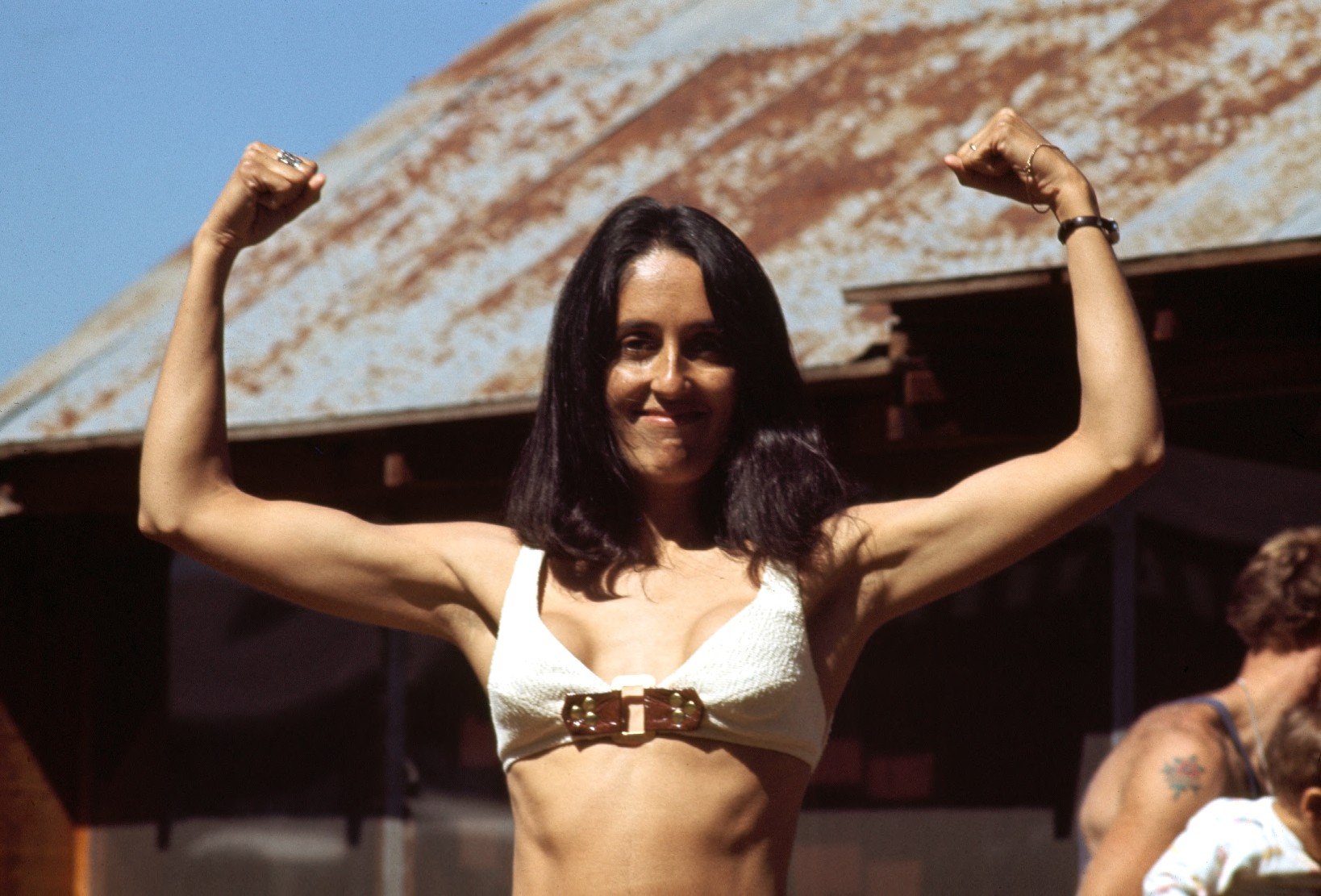
Joan Baez clowning at Struggle Mountain [1971] (Bob Fitch Photography Archive, Stanford University. Libraries. Department of Special Collections.)
“I’m assuming Trump will not make it to the White House,” she said. “I just was watching Michael Moore’s documentary to understand why people wanted to vote for him. I mean who are these people, and what are their needs? They are real people feeling really disenfranchised and they need to be heard.”
“At the end of a recent show, I was singing ‘Swing Low’ and at the end the lyric is, ‘coming for to carry me home,’ and I sing ‘coming for to carry me, and you, and us, and even Donald.’’
“I’m in just a lucky position. I can go sort of handing out antidotes. In the concert we sing a Woody Guthrie song to refugees and about refugees, and it’s a chance for the audience to sort of air its feelings. Maybe our struggles are for empathy and compassion. When we have empathy and compassion enough, then we’ll change some of our behavior.”
But Baez said the 2016 election isn’t the most pressing challenge Americans need to face.
“I think the major issue is global warming. I think we can go on having our discussions about who’s going to run for what. But if it’s 160 degrees out, it’s not going to matter. And it’s happening very, very, very fast. Many would say the first thing to do is research that and try to figure out where you can fit in, or what you can do for what animals or for what Barrier Reef or whatever – just look into it.
“You can go where your heart dictates. Nothing is too small to get involved with it and making an effort will make your life that much richer.”

